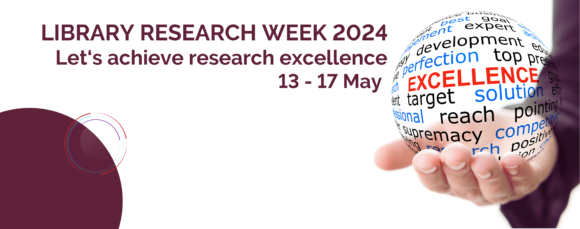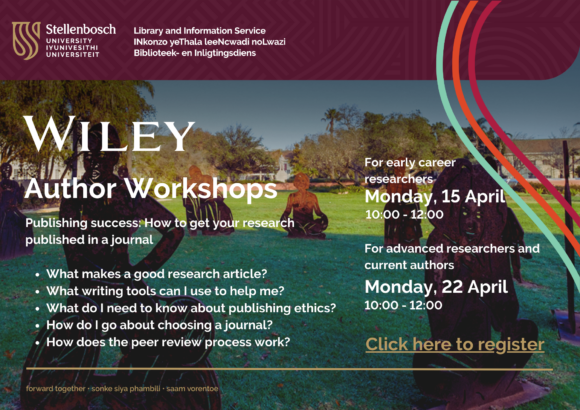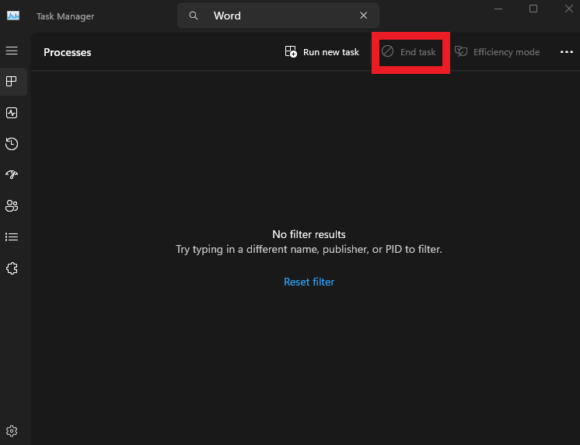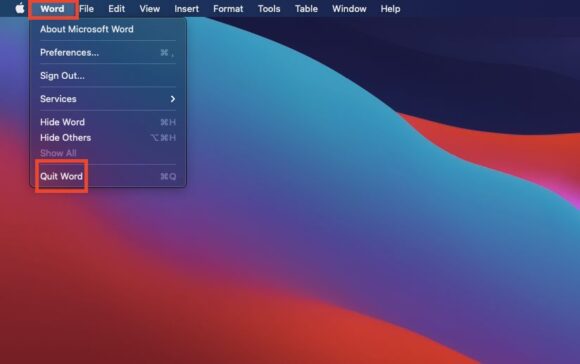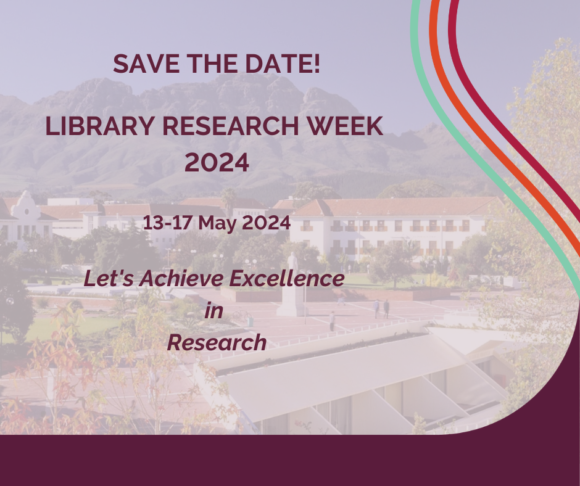
Spring feels like it is coming early this year so hopefully we’ll have a proper Spring Day on 1 September. What you can also look forward to in September is our next batch of #SmartResearcher webinars! The focus in September will be on all things data, how to manage it, how to preserve it and also, how to visualise it! We have workshops on MS Power Bi, Tableau Desktop, Flourish. In addition, if you need to preserve your data and want to learn more, have a look at our upcoming webinar about SUNScholarData. We also have our monthly EndNote for Reference Management webinar if you want to brush up on the tool, or if you are finally ready to switch over from Mendeley. We look forward to seeing you and helping you with your research!
| These workshops are aimed at postgraduate students, emerging researchers and academic staff and the focus will be on the research process. The sessions vary in length depending on the subject matter, but cover a wide range of subjects related to the postgraduate research journey. |
| Principles of Data Visualisation
This workshop will cover the key principles to keep in mind when you are planning your visualisations, from choosing the best visualisation type for your data to the effective use of colour, narrative, etc. Date: Tuesday, 3 September Time: 14:00 – 15:30 |
| Overview of software for effective data analysis and data visualisation
An overview of tools and free software for data analysis and data visualisation will be presented. These tools are useful for statistical analysis, visualisation, mapping, data cleaning and the digital humanities. Date: Thursday, 5 September Time: 14:00 – 16:00 |
| EndNote for reference management
EndNote 21 offers various services, including reference management, organising and annotation of PDF documents and collaboration. In this session, we will show you how to download and install EndNote and how to set up your account. Date: Wednesday, 18 September 2024 Time: 11:00 – 13:00 |
| Introduction to Tableau Desktop and Flourish for data visualisation
This workshop will be an introductory course to visualise your data with Tableau Desktop and Flourish. Both tools are free for students and academics and are fairly user friendly. Date: Thursday, 19 September 2024 Time: 14:00 – 16:00 |
| Introduction to Microsoft Power BI
The workshop will be a hands-on introduction to Power BI, available for free through SU’s subscription to Microsoft 365. Participants will learn the following: · How to install the desktop application and connect to Microsoft Excel · Start visualising data easily with an extensive library of data visualisations. · How to build reports and dashboards Date: Wednesday, 25 September 2024 Time: 14:00 – 16:00 |
| Tableau for Intermediate Users
This is an intermediate-level workshop focusing on visual data analysis skills using Tableau Desktop software. Tableau stands out as one of the global leaders in business intelligence software and finds extensive application in universities for teaching and learning by academic staff. Date: Thursday, 26 September 2024 Time: 11:00 – 13:00 |
| An overview of SUNScholarData – the SU institutional data repository
Many funders mandate that data collected in the process of conducting research funded by them is deposited in reputable repositories, this workshop will provide an overview of research data repositories and demonstrate the manner in which the SU’s Institutional Research Data Repository functions. Date: Thursday, 26 September 2024 Time: 14:00 – 16:00 |



![The best academic search engines [Update 2024] - Paperpile](https://cdn.paperpile.com/guides/img/academic-search-engine-BASE-700x428.png)


